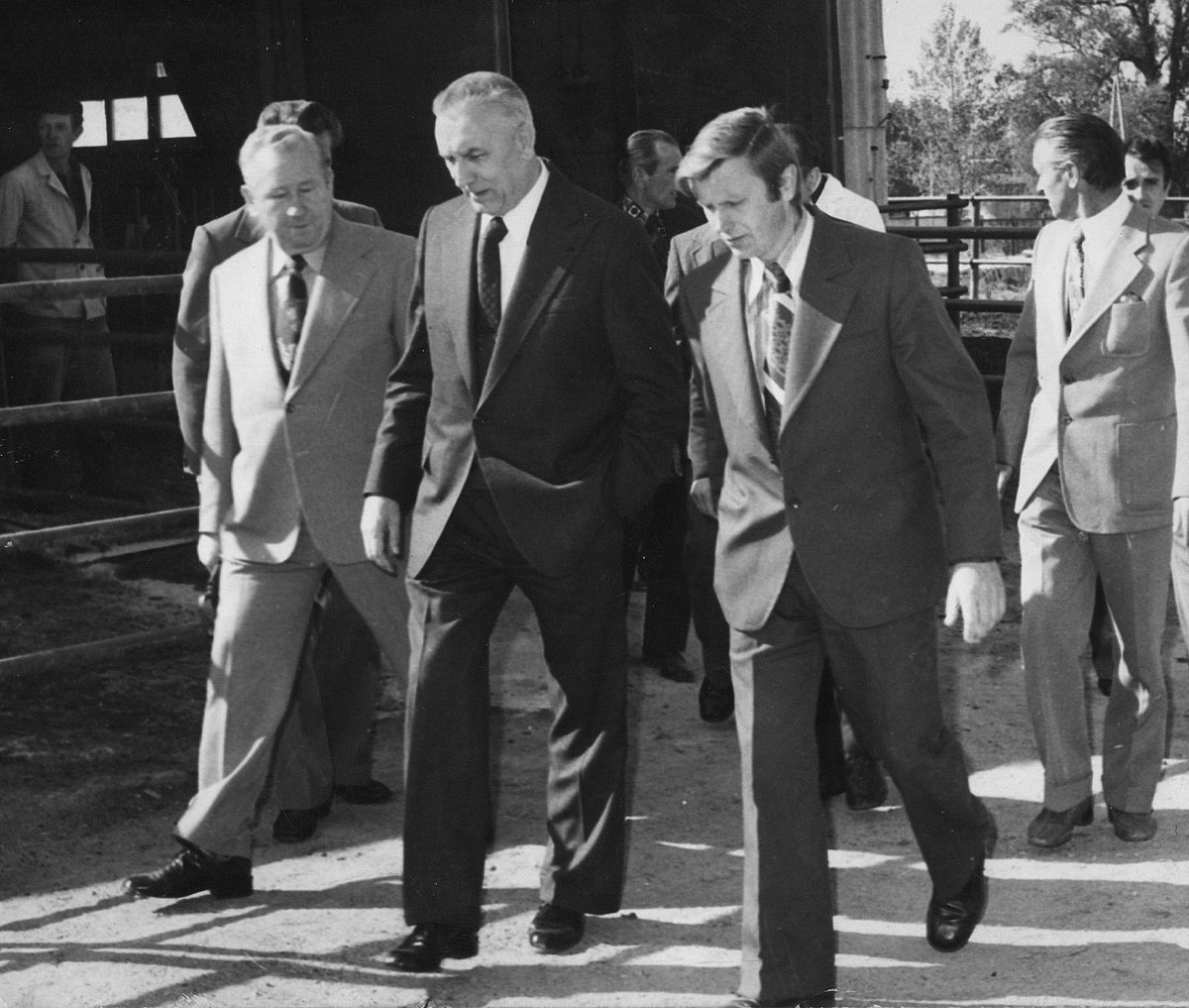
Solidarity
PolandPrice increases for essential consumer goods triggered the Polish protests of 1970. In December, there were disturbances and strikes in the Baltic Sea port cities of Gdańsk, Gdynia, and Szczecin that reflected deep dissatisfaction with living and working conditions in the country. To revitalize the economy, from 1971 the Gierek regime introduced wide-ranging reforms that involved large-scale foreign borrowing. These actions initially caused improved conditions for consumers, but in a few years the strategy backfired and the economy deteriorated.
Edward Gierek was blamed by the Soviets for not following their "fraternal" advice, not shoring up the communist party and the official trade unions and allowing "anti-socialist" forces to emerge. On 5 September 1980, Gierek was replaced by Stanisław Kania as first secretary of the PZPR. Delegates of the emergent worker committees from all over Poland gathered in Gdańsk on 17 September and decided to form a single national union organization named "Solidarity".
In February 1981, Defense Minister General Wojciech Jaruzelski assumed the position of prime minister. Both Solidarity and the communist party were badly split and the Soviets were losing patience. Kania was re-elected at the Party Congress in July, but the collapse of the economy continued and so did the general disorder.
At the first Solidarity National Congress in September–October 1981 in Gdańsk, Lech Wałęsa was elected national chairman of the union with 55% of the vote. An appeal was issued to the workers of the other East European countries, urging them to follow in the footsteps of Solidarity. To the Soviets, the gathering was an "anti-socialist and anti-Soviet orgy" and the Polish communist leaders, increasingly led by Jaruzelski and General Czesław Kiszczak, were ready to apply force.
In October 1981, Jaruzelski was named first secretary of the PZPR. The Plenum's vote was 180 to 4, and he kept his government posts. Jaruzelski asked parliament to ban strikes and allow him to exercise extraordinary powers, but when neither request was granted, he decided to proceed with his plans anyway.
